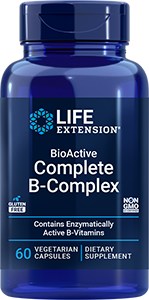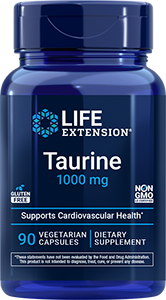
Newsletter
Newsletter
It’s never too early to think about calcium intake

People who are decades away from retirement often aren’t too concerned about their calcium intake—but a new study suggests that they should be. A review and meta-analysis from Wenzhou Medical University found that among 35-year-olds, greater calcium intake improved bone mineral density and/or bone mineral content compared to a placebo or no treatment.
Bone mass gradually increases early in life before it peaks and reaches a plateau at age 20 to 35, then begins to decline. According to the study, having a “head start” on bone health while you’re still young might pay dividends when it really matters: old age, when bone density loss is inevitable.
“Our review provides a new train of thought regarding calcium [intake] and the optimal timing of its effects,” senior author Shuran Wang stated. “In terms of bone health and an individual’s full life cycle, the intervention window of calcium [intake] should be advanced to the age around the plateau of peak bone mass – namely at 20–35 years of age.”
The researchers determined that boosting the calcium intake of the diet with less than 1,000 milligrams calcium per day improved bone mineral density or bone mineral content. Increased calcium intake was more effective among people aged 20 to 35 years than in younger individuals. Bone mineral density particularly increased in the femoral neck, the site of the majority of hip fractures.
The meta-analysis included 43 randomized, controlled trials that evaluated the effects of calcium from various sources with or without vitamin D on bone mineral density or bone mineral content in the forearm, lumbar spine, hip, femoral neck and/or total body among a total of 7,382 participants. The average age of the participants in each study ranged from 2.7 to 23.7 years. Some of the studies assessed the effects of non-food calcium sources while the remainder evaluated the impact of food sources of the mineral. The findings appeared on September 27, 2022, in the journal Elife.1
Products
Apply What You've Learned: Osteoporosis
- Osteoporosis, a disease characterized by weakened bones, is often thought of as a disorder of aging women; however, osteoporosis also affects men.
- A decline in levels of the hormone estrogen is one of many potential contributing factors to osteoporosis. Other hormones, particularly testosterone in men and DHEA in women, also support bone health.2-4 Individuals concerned about bone health and osteoporosis may want to have their hormone levels evaluated.
- Weight-bearing aerobic exercise, such as jogging, stair climbing and Tai Chi, and strength and resistance exercise with or without weights may help increase bone density in addition to providing other health benefits.5
- Nutritional factors like calcium, magnesium, boron, vitamin D and vitamin K help support healthy bones.6-8 The Bone Health & Osteoporosis Foundation (formerly the National Osteoporosis Foundation) includes adequate intake of calcium and vitamin D among their universal bone health recommendations.9
References
- Liu Y et al. Elife. 2022 Sep 27;11:e79002.
- Mohamad NV et al. Clin Interv Aging. 2016 Sep 22;11:1317-1324.
- Weiss EP et al. Am J Clin Nutr. 2009 May;89(5):1459-67.
- von Mühlen D et al. Osteoporos Int. 2008 May;19(5):699-707.
- Benedetti MG et al. Biomed Res Int. 2018 Dec 23;2018:4840531.
- Aydin H et al. Biol Trace Elem Res. 2010 Feb;133(2):136-43.
- Pizzorno L et al. Integr Med (Encinitas). 2015 Aug;14(4):35-48.
- Bischoff-Ferrari HA et al. JAMA. 2005 May 11;293(18):2257-64.
- Bone Health & Osteoporosis Foundation. “BHOF's Clinician's Guide To Prevention And Treatment Of Osteoporosis. 2022 Clinician’s Guide.” https://www.bonesource.org/clinical-guidelines
Featured Life Extension Magazine® Article
Cancer-Fighting Impact of Black Tea by Bruce Edwards
Theaflavins are compounds that form when green tea leaves are fermented to make black tea. Theaflavins activate p53, a tumor suppressor gene that regulates cell pathways involved in the development of cancer. Active p53 repairs DNA damage that can result in cancer-causing mutations. Theaflavins additionally regulate mTOR, a protein that can cause excessive cell propagation, and inhibit the inflammation-inducing complex NF-kB.
In a study that compared the effects of drinking black tea to a placebo, men who consumed black tea for five days prior to surgery for prostate cancer had higher tumor levels of tea polyphenols. When tumor cells were cultured in patient-derived serum, cells from men who had consumed black tea prior to their surgery exhibited significantly reduced growth.
Read Full Article
What's Hot
Health Concern
Mortality lower during five-year period among adults who supplemented with calcium plus vitamin D
A study published in the July-August 2021 issue of the Indian Journal of Endocrinology and Metabolism found a decrease in fractures and mortality during a 5-year average follow-up period among individuals who regularly supplemented with calcium and vitamin D.

Osteoporosis and Bone Health
Osteoporosis is weakening of the bones. Supplementation with vitamins D and K is also important for bone health.
Related Life Extension Magazine® Articles

How Men Can Fight Osteoporosis
Men are at a higher risk of osteoporosis than most realize. Healthy lifestyle choices, along with bone-building nutrients, can protect and restore bone density.

Vitamin D: Surprising Link Between Bone Health and Metabolism
A recent review found that vitamin D modulates metabolic factors to reduce inflammation, maintain bone density, and improve insulin sensitivity.
Highlight
Discover LE Rewards: FREE Perks!
Being healthy is its own reward, but we think you deserve some perks for choosing The Science of a Healthier Life®. That's why we offer you 2% LE Dollars with every purchase, no fees or membership required.
And that's not all. We sweeten the deal with additional ways to save, stack up rewards, and get the most from your Life Extension partnership!
Learn More
Life Extension Magazine® Issue Now Online
A remarkable number of healthy-longevity findings have been published over the past 18 months.




